Related Research Articles
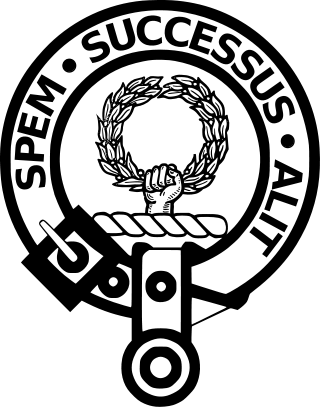
Clan Ross is a Highland Scottish clan. The original chiefs of the clan were the original Earls of Ross.
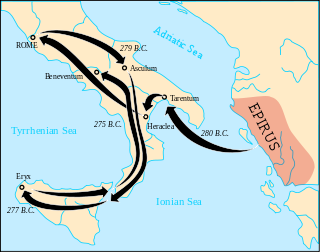
The Pyrrhic War was largely fought between the Roman Republic and Pyrrhus, the king of Epirus, who had been asked by the people of the Greek city of Tarentum in southern Italy to help them in their war against the Romans.

Clan Mackay is an ancient and once-powerful Highland Scottish clan from the far North of the Scottish Highlands, but with roots in the old Kingdom of Moray.

Clan Mackintosh is a Scottish clan from Inverness in the Scottish Highlands. The chiefs of the clan are the Mackintoshes of Mackintosh. Another branch of the clan, the Mackintoshes of Torcastle, are the chiefs of Clan Chattan, a historic confederation of clans.

Clan Fraser of Lovat is a Highland Scottish clan and the principal branch of Clan Fraser. The Frasers of Lovat are strongly associated with Inverness and the surrounding area since the Clan's founder gained lands there in the 13th century.

Clan Cameron is a West Highland Scottish clan, with one main branch Lochiel, and numerous cadet branches. The Clan Cameron lands are in Lochaber and within their lands lies Ben Nevis which is the highest mountain in the British Isles. The Chief of the clan is customarily referred to as simply "Lochiel".

Clan Graham has two main families of Scottish clans, the Grahams of Menteith and the Grahams of Montrose. Each have their own tartan patterns. William Graham became the 7th Earl of Menteith in 1610 in what is now Perthshire, Scotland. The Grahams of Montrose had territories in both the Scottish Highlands and Lowlands, and the chief of the clan rose to become the Marquess and later Duke of Montrose.
The Timeline of conflict in Anglo-Saxon Britain is concerned with the period of history from just before the departure of the Roman Army, in the 4th century, to just after the Norman Conquest in the 11th century.
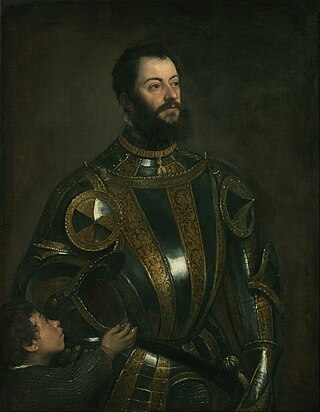
Alfonso d'Avalos d'Aquino, 6th Marquis of Pescara, 2nd Marquis of Vasto, was an Italian condottiero of Aragonese origins, renowned for his service in favour of Charles V, Holy Roman Emperor and King of Spain.
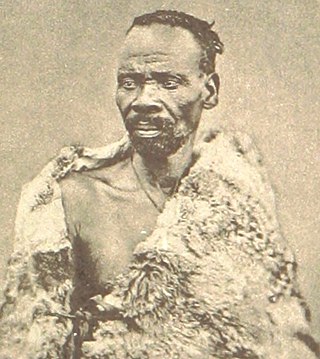
Sekhukhune I was the paramount King of the Marota, more commonly known as the Bapedi, from 21 September 1861 until his assassination on 13 August 1882 by his rival and half-brother, Mampuru II. As the Pedi paramount leader he was faced with political challenges from Voortrekkers, the independent South African Republic, the British Empire, and considerable social change caused by Christian missionaries.
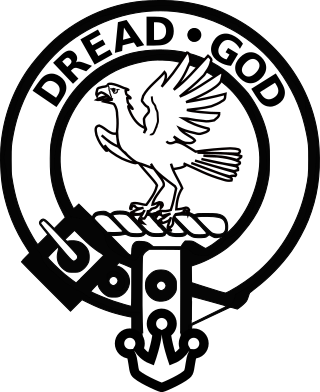
Clan Munro is a Highland Scottish clan. Historically the clan was based in Easter Ross in the Scottish Highlands. Traditional origins of the clan give its founder as Donald Munro who came from the north of Ireland and settled in Scotland in the eleventh century, though its true founder may have lived much later. It is also a strong tradition that the Munro chiefs supported Robert the Bruce during the Wars of Scottish Independence. The first proven clan chief on record however is Robert de Munro who died in 1369; his father is mentioned but not named in a number of charters. The clan chiefs originally held land principally at Findon on the Black Isle but exchanged it in 1350 for Estirfowlys. Robert's son Hugh who died in 1425 was the first of the family to be styled "of Foulis", despite which clan genealogies describe him as 9th baron.

The Fiok festival is celebrated by the chiefs and people of Sandema in the Upper East Region of Ghana. The festival is celebrated in the month of December every year.
Builsa is a town in the Builsa District of the Upper East Region of Ghana. The capital of Bulsa North District is Sandema, of Bulsa South District Fumbisi; other villages/towns are Wiaga, Fumbisi, Kanjaga, Gbedema, Siniensi, Kadema and Chuchuliga.
The Battle of Saunshi was fought between the Kingdom of Mysore and the Maratha Confederacy in 1777. Hyder Ali attempted to try to regain his lost territories of Malabar and Coorg from the Marathas and was successful in doing so. Hyder Ali decided to attack the Marathas at Saunshi. Hyder Ali sent his trusted general Muhammad Ali to attack the Maratha garrison stationed at Saunshi. The result of the battle was a decisive victory for Mysore and Hyder Ali against the Maratha forces. Maratha Chief Konher Rao was killed in the battle and Pandurang Rao was captured and taken as a prisoner by the Mysore forces.
The Zabarma Emirate was an Islamic state that existed from the 1860s to 1897 in what is today parts of Ghana and Burkina Faso.
Babatu or Baba Ato, was the Zarma military leader and jihadi warlord over the Zabarma Emirate in the late 19th century. Babatu originated in Indougou (N'Dougou) in what is today the nation of Niger. Babatu became the ruler of the Zabarima emirate in 1878 after the death of the former ruler, Gazari. He was a slaver and fought against Sandema warriors.
Nana Dokua was the queen mother of Akyem Abuakwa. She was the one who welcomed the King of the Dwabens called Nana Kwaku Boateng and his army. A civil war broke out between the Ashantis and the Dwabens in 1832, six years after the battle of Akatamansu. In 1824, during her regime, she also provided refuge for the Kotokus who had also assisted Abuakwa in some wars against the Ashantis. During her reign, part of the Juabens revolted against the Ashantis. Nana Kwaku Boateng was the leader of the rebels who was their chief. They were forced to leave Juaben in Ashanti for the south.
Nana Obiri Yeboa was the Kumasehene during his era and the occupant of the Aban Dwa Stool. He reigned from 1660 to 1680. He was succeeded by Nana Osei Tutu as the chief of Kwaman state which was later known as Kumasi state. He was the uncle of Osei Tutu. Nana Obiri Yeboa's uncle was Nana Oti Akenten.
The Battle of Sandema was a battle in Africa that was fought between Babatu and the people of Sandema. The battle is said to have taken place at a place called Akumcham, where the Builsa united and defeated the leader of the Zabarma warriors.

Wani Lodu Swaka Lo Buluk is a Sudanese-Australian professional basketball player for the Darwin Salties of the NBL1 North. He is also contracted with the Illawarra Hawks of the National Basketball League (NBL). Opting to forgo college basketball in the United States to begin his professional career in Australia, he made his debut for the Perth Wildcats in the NBL in 2018. He won two NBL championships with the Wildcats over three years before joining the Sydney Kings in 2021 and winning a third championship in 2022. He also helped the Warwick Senators win the West Coast Classic in 2020.
References
- 1 2 "Bulsa History – Buluk" . Retrieved 2020-08-16.
- 1 2 Kröger, Franz (2009). "Raids and Refuge - The Bulsa in Babatu's Slave Wars". Research Review (Legon/Accra). 24 (2).
- ↑ "Extracts from Bulsa History: Sandema Chiefs before Azantilow". www.buluk.de. Retrieved 2020-08-16.
- 1 2 "Extracts (1731-1910) of the "Chronology of Bulsa History" translated into English and supplied with some additions". www.ghana-materialien.de. Retrieved 2020-08-16.